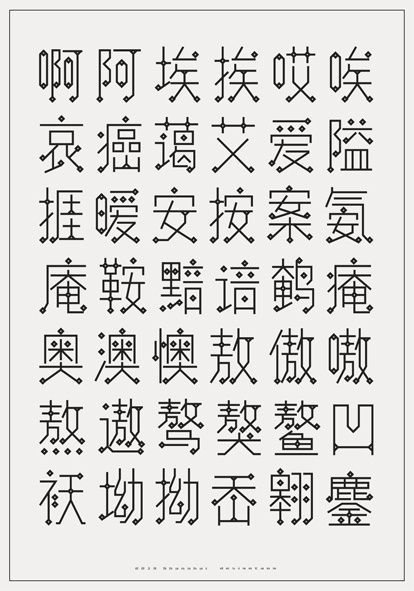Text
HSK2 WORDS LIST (300 words)
1 我们 wǒmen we, us (pl.)
2 你 nǐ you
3 你们 nǐmen you (pl.)
4 他 tā he, him
5 她 tā she, her
6 他们 tāmen they (male+female / male,pl.)
7 她们 tāmen they (females, pl.)
8 这 (这儿) zhè ( zhèr) here, this
9 那 (那儿) nà (nàr) there, that
10 哪(哪儿) nǎ (nǎr) where
11 谁 shéi (shuí) who [updated]
12 什么 shénme what, why
13 多少 duōshǎo how many, how much
14 几 jǐ a few, how many
15 怎么 zěnme how
16 怎么样 zěnmeyàng how about
17 您 nín you
18 它 tā it
19 大家 dàjiā everyone
20 每 měi every
21 为什么 wèishénme why
22 一 yī one
23 二 èr two
24 三 sān three
25 四 sì four
26 五 wǔ five
27 六 liù six
28 七 qī seven
29 八 bā eight
30 九 jiǔ nine
31 十 shí ten
32 零 líng zero
33 两 liǎng two
34 百 bǎi hundred
35 千 qiān thousand
36 第一 dìyī first
37 个 gè one, a, an
38 岁 suì year
39 本 běn volume
40 些 xiē some
41 块 kuài piece
42 次 cì number
43 公斤 gōngjīn kilogram
44 元 yuán yuan
45 件 jiàn piece
46 张 zhāng sheet
47 不 bù no
48 没 méi no
49 很 hěn quite, very
50 太 tài too
51 都 dōu all
52 别 bié other
53 非常 fēicháng very
54 也 yě likewise
55 还 hái repay
56 最 zuì most
57 真 zhēn real
58 正在 zhèngzài be being
59 已经 yǐjīng already
60 一起 yìqǐ together
61 再 zài again
62 就 jiǜ at once
63 和 hé and
64 因为 yīnwèi because
65 所以 suǒyǐ so
66 但是 dànshì but
67 在 zài in, at
68 从 cóng from
69 对 duì right
70 此 cǐ this
71 向 xiàng towards
72 离 lí leave
73 的 de
74 了 le
75 吗 ma
76 呢 ne
77 得 de
78 着 zhe
79 过 guo
80 吧 ba
81 喂 wèi hello
82 家 jiā home
83 学校 xuéxiào school
84 饭馆 fànguǎn restaurant [updated]
85 商店 shāngdiàn store
86 医院 yīyuàn hospital
87 火车站 huǒchēzhàn train station
88 中国 zhōngguó China
89 机场 jīchǎng airport
90 教室 jiàoshì classroom
91 房间 fángjiān room
92 路 lù road
93 北京 běijīng Beijing
94 上 shàng up
95 下 xià below
96 前面 qiánmiàn front
97 后面 hòumiàn behind
98 左边 zuǒbiān left
99 右边 yòubiān right
100 外 wài out
101 旁边 pángbiān side
102 里 lǐmiàn inside
103 今天 jīntiān today
104 明天 míngtiān tomorrow
105 昨天 zuótiān yesterday
106 上午 shàngwǔ morning
107 中午 zhōngwǔ noon
108 下午 xiàwǔ afternoon
109 年 nián year
110 月 yuè month
111 日 rì day
112 星期 xīngqī week
113 点 diǎn dot, spot
114 分钟 fēnzhōng minute
115 现在 xiànzài now
116 时候 shíhóu time
117 早上 zǎoshàng morning
118 晚上 wǎnshàng night
119 小时 xiǎoshí hour
120 时间 shíjiān time
121 去年 qùnián last year
122 号 hào number
123 生日 shēngrì birthday
124 爸爸 bàba father
125 妈妈 māma mother
126 儿子 érzi son
127 女儿 nǚér daughter
128 老师 lǎoshī teacher
129 学生 xuéshēng student
130 同学 tóngxué shoolmate
131 朋友 péngyǒu friend
132 医生 yīshēng doctor
133 先生 xiānshēng sir
134 小姐 xiǎojiě Miss
135 哥哥 gēge brother
136 姐姐 jiějie sister
137 弟弟 dìdi younger brother
138 妹妹 mèimei sis
139 丈夫 zhàngfu husband
140 妻子 qīzi wife
141 孩子 háizi child
142 男人 nánrén man
143 女人 nǚrén woman
144 服务员 fúwùyuán waiter
145 衣服 yīfu cloth
146 水 shuǐ water
147 菜 cài vegetable
148 米饭 mǐfàn rice
149 水果 shuǐguǒ fruit
150 苹果 píngguǒ apple
151 茶 chá tea
152 杯子 bēizi cup
153 钱 qián money
154 飞机 fēijī airplane
155 出租车 chūzūchē taxi
156 电视 diànshì television
157 电脑 diànnǎo computer
158 电影 diànyǐng movie
159 天气 tiānqì weather
160 猫 māo cat
161 狗 gǒu dog
162 东西 dōngxī thing
163 鱼 yú fish
164 羊肉 yángròu mutton
165 牛奶 niúnǎi milk
166 鸡蛋 jīdàn egg
167 西瓜 xīguā watermelon
168 咖啡 kāfēi coffee
169 自行车 zìxíngchē bike
170 船 chuán boat
171 雪 xué snow
172 药 yào medicine
173 手机 shǒujī phone
174 手表 shǒubiǎo watch
175 眼睛 yǎnjīng eye
176 身体 shēntǐ body
177 公共汽车 gōnggòngqìchē bus
178 报纸 bàozhǐ newspaper
179 人 rén person
180 名字 míngzi name
181 书 shū book
182 汉语 hànyǔ Chinese
183 字 zì character
184 桌子 zhuōōzi desk
185 椅子 yǐzi chair
186 门 mén door
187 题 tí topic
188 课 kè lesson
189 姓 xìng surname
190 问题 wèntí question
191 事情 shìqing matter
192 考试 kǎoshì exam
193 票 piào ticket
194 意思 yìsi meaning
195 颜色 yánsè color
196 谢谢 xièxiè thank
197 不客气 búkèqì you are welcome
198 再见 zàijiàn good-bye
199 请 qǐng please
200 对不起 duìbùqǐ sorry
201 没关系 méiguānxì It doesn’t matter
202 欢迎 huānyíng welcome
203 是 shì am, is, are
204 有 yǒu have
205 看 kàn look
206 听 tīng listen
207 说话 shuōhuà speak
208 读 dú read
209 写 xiě write
210 看见 kànjiàn see
211 叫 jiào call
212 来 lái come
213 回 huí return
214 去 qù go
215 吃 chī eat
216 喝 hē drink
217 睡觉 shuìjiào sleep
218 打电话 dǎdiànhuà call up
219 做 zuò do
220 买 mǎi buy
221 开 kāi open
222 坐 zuò sit
223 住 zhù live
224 学习 xuéxí study
225 工作 gōngzuò work
226 下雨 xiàyǔ rain
227 问 wèn ask
228 走 zǒu walk
229 进 jìn enter
230 出 chū come
231 跑步 pǎobù run
232 到 dào arrive
233 穿 chuān wear
234 洗 xǐ wash
235 给 gěi give
236 找 zhǎo find
237 懂 dǒng understand
238 笑 xiào smile
239 回答 huídá answer
240 告诉 gàosù tell
241 准备 zhǔnbèi prepare
242 开始 kāishǐ begin
243 介绍 jièshào introduce
244 帮助 bāngzhù help
245 玩 wán play
246 送 sòng present
247 等 děng wait
248 让 ràng let
249 起床 qǐchuáng get up
250 唱歌 chànggē sing
251 跳舞 tiàowǔ dance
252 旅游 lǚyóu travel
253 上班 shàngbān be on duty
254 生病 shēngbìng fall ill
255 休息 xiūxi rest
256 运动 yùndòng exercise
257 游泳 yóuyǒng swim
258 踢足球 tīzúqiú play footbal
259 打篮球 dǎlánqiú play basketball
260 完 wán finish
261 爱 ài love
262 喜欢 xǐhuān love, like
263 想 xiǎng want
264 认识 rènshi know
265 觉得 juédé think
266 知道 zhīdào know
267 希望 xīwàng hope
268 会 huì can
269 能 néng can, be able to
270 可以 kěyǐ can
271 要 yào ask for
272 可能 kěnéng may
273 好 hǎo good
274 大 dà big
275 小 xiǎo small
276 多 duō many, much
277 少 shǎo few, little
278 冷 lěng cold
279 热 rè hot
280 高兴 gāoxìng happy
281 漂亮 piàoliàng beautiful
282 高 gāo tall
283 红 hóng red
284 白 bái white
285 黑 hēi black
286 忙 máng busy
287 快 kuài fast
288 慢 màn slow
289 远 yuǎn far
290 近 jìn close
291 好吃 hǎochī delicioous
292 累 lèi tire
293 长 cháng long
294 新 xīn new
295 贵 guì expensive
296 便宜 piányi cheap
297 晴 qíng fine
298 阴 yīn cloudy
299 错 cuò wrong
300 快乐 kuàilè happy
943 notes
·
View notes
Photo
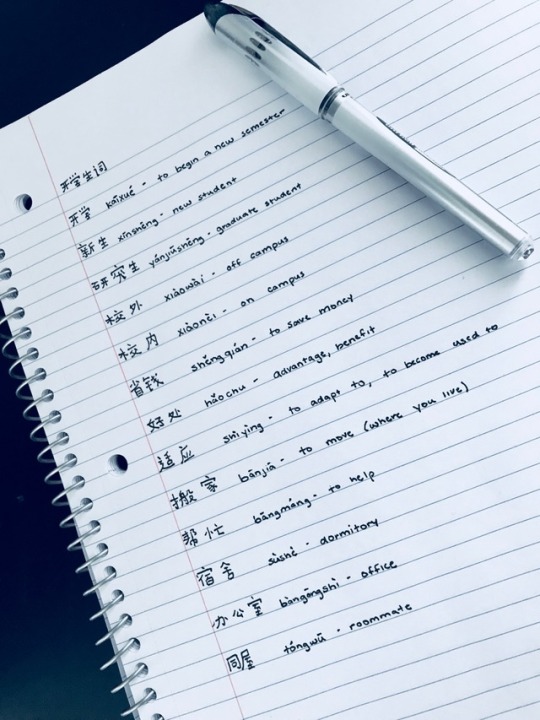
开学生词 // Starting School Vocabulary
With many of us returning to school after Winter Break, here are some of my favorite back-to-school words.
开学 kāi xué - to begin a new semester
新生 xīn shēng - new student
研究生 yán jiū shēng - graduate student
校外 xiào wài - off campus
校内 xiào nèi - on campus
省钱 shěng qián - to save money
好处 hǎochu - advantage, benefit
适应 shì yìng - to adapt to, to become used to
搬家 bān jiā - to move (where you live)
帮忙 bāng máng - to help
宿舍 sù shè - dormitory
办公室 bàn gōng shī - office
同屋 tóng wú - roommate
228 notes
·
View notes
Text
Chinese ~skin care~ vocabulary

护肤 hùfū - skin care
皮肤 pífū - skin
SKIN TYPES 皮肤类型 [pífū lèixíng]
Normal skin: 中性皮肤 [zhōng xìng pífū]
Dry skin: 干性皮肤 [gān xìng pífū]
Oily skin: 油性皮肤 [yóuxìng pífū]
Combination skin: 混合性皮肤 [hùnhé xìng pífū]
Sensitive skin: 敏感性皮肤 [mǐngǎn xìng pífū]
EFFECT 功效类 [gōngxiào lèi]
Anti-acne: 青春痘(用的) [qīngchūn dòu (yòng de)]
After sun: 日晒后 (用的) [rì shài hòu (yòng de)]
Anti-: 抗、防 [kàng]; [fáng]
Anti-wrinkle: 抗老; 防皱 [kàng lǎo]; [fáng zhòu]
Purifying: 清洁(用的) [qīngjié (yòng de)]
Facial: 脸部(用) [liǎn bù (yòng)]
Hydra: 保湿 [bǎoshī]
Nourishing: 滋养 [zīyǎng]
Oil-control: 抑制油脂 [yìzhì yóuzhi]
Peeling: 敷面落式面膜 [fū miàn luò shì miànmó]
Repairing: 修护 [xiū hù]
Revitalizing: 活化 [huóhuà]
Sun block: 防晒 [fángshài]
Treatment: 修 [xi]
Washing: 洗 [xǐ]
Whitening 美白 [měibái]
SKINCARE ROUTINE 护肤程序 [hùfū chéngxù]
1. CLEANSING 清洁 [qīngjié]
Foam: 泡沫 [pàomò]
Facial cleanser: 洗面奶 [xǐmiànnǎi]
Body wash/shower gel: 沐浴露 [mùyùlù]
2. EXFOLIATION 表皮剥脱 [biǎopí bōtuō]
Scrub: 去角质; 磨砂膏 [qù jiǎozhì]; [móshā gāo]
Peeling: 敷面落式面膜 [fū miàn luò shì miànmó]
3. REFRESHING 恢复肌肤 [huīfù jīfū]
Toner: 爽肤水 [shuǎngfūshuǐ]
Smoothing/balancing toner: 柔肤水 [róufūshuǐ]
Lifting lotion: 紧肤水 [jǐnfū shuǐ]
Essence/serum: 精华液 [jīnghuáyè]
4. MOISTURIZING 保湿 [bǎoshī]
露 [lù] :lotion,霜 [shuāng] :cream
Skin cream: 护肤霜 [hùfūshuāng]
Day cream: 日霜 [rìshuāng]
Night cream: 晚霜 [wǎnshuāng]
Eye gel/cream: 眼霜 [yǎnshuāng]
Lip care: 护唇 [hù chún]
Body lotion 身体乳 [shēntǐrǔ]
Hand lotion: 护手霜 [hùshǒushuāng]
945 notes
·
View notes
Text
Traditional & Simplified: You Can Have It All
I guess I talk about simplified & traditional characters kind of a lot so I thought I’d try to pull together a resource page for those trying to make the switch or if you just want to know more.
Resources:
學習吧! From Simplified To Traditional - This is a blog in Spanish, but they have a series on learning the two and if you already know one then you’ll be fine (o bueno, pueda mejorar su español al mismo tiempo)
Simplified to Traditional Conversion Table - I don’t actually recommend using this as it’s a little overwhelming, but it let’s you get an overall idea of character change. If you actually just want to change something there’s plenty of programs, but you can also just use google translate. Since it’s not actually “translating” anything it won’t garble it. (otherwise p much never use it for Mandarin-English)
List of Radicals - A handy thing anyway, but you can also see that the vast majority are the same in traditional/simplified so once you know the different ones yr good to go. For many characters the only change is this new radicle, e.g. 給 -> 给
probably excessive, but you can also get character sheets, but honestly if you can just recognize your “second” set well that’s enough, especially because so much is typing.
A lot of learning is just seeing it more and more—you can make a flashcard set, or you can also just start doing everything in the one you want to learn (p much me learning trad., then going to China). Also use dictionaries that show both, like pleco or mdbg.
Info:
More Than You Want to Know About Simplified Characters - some decently detailed history
Language Reform in China (yikes it wasn’t that much when I got it) - Way cool, lots of primary resources talking about the debate, including when full-romanization was proposed
Writing and Literacy in Chinese, Korean, and Japanese - again, probably more than you want to know
bam there you go, reading all the texts. most of the time it’s really not so bad, only sometimes am I like “dumbass you knew that.” ( 權 -> 权, 鬆 & 松 -> 松)
362 notes
·
View notes
Text
跟...比起来 (mandarin grammar)
跟…比起来 is a way of making comparisons
the structure is as follows:
noun (phrase) 1+跟+noun (phrase) 2+比起来, comment
OR
跟+noun 1+比起来, noun 2 +verb phrase
*note: when i looked it up to check my facts i saw you can apparently also use 和 in place of 跟
the comment that follows 比起来 is the comparison between the two nouns and should use words like 最,比较,一点,得多,and 多了
structure 1: noun (phrase) 1+跟+noun (phrase) 2+比起来, comment
*in this first structure, you’re comparing noun 1 to noun 2, so the comment will probably have something to do with noun 1 if it’s a statement*
猫跟狗比起来,我更喜欢猫。
Between cats and dogs, I like cats more.
[here it would be as a question] 猫跟狗比起来,你更喜欢哪一个?
Between cats and dogs, which do you like more?
对我来说,中文课跟数学课比起来,中文课好玩得多。
To me, when comparing Chinese and math class, Chinese class is more fun.
用洗衣机洗衣服跟自己用手洗衣服,你觉得那一个更容易?
Which is easier: using a washer to wash your clothes or washing them by hand?
structure 2: 跟+noun 1+比起来, noun 2 +verb phrase
*in this second structure noun 1 is what noun 2 is being compared to*
跟你比起来,我漂亮多了。
Compared to you, I’m way prettier
跟我的电话费比起来,我的学费比较贵。
My tuition is more expensive than my phone bill.
跟鸡肉比起来,牛肉最好吃。
compared to chicken, beef is the most delicious.
so that’s it since i’m in the middle of finals and feel a little out of it, there might be a couple mistakes. if you notice any please please tell me (preferably through an ask so i’m more likely to see it)
405 notes
·
View notes
Photo
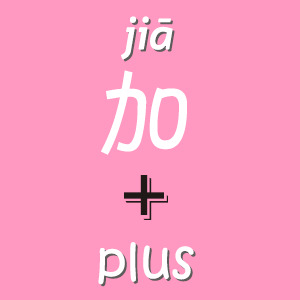
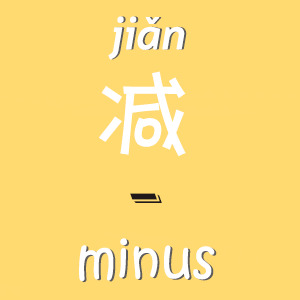

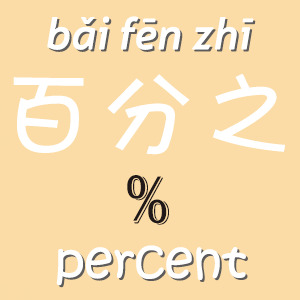
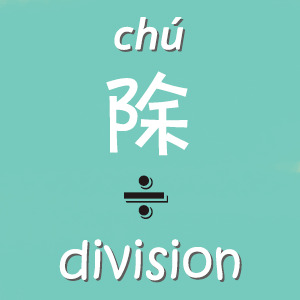
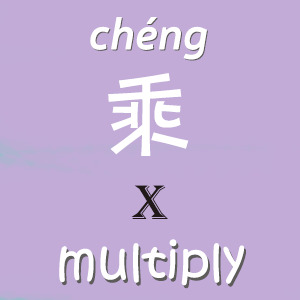
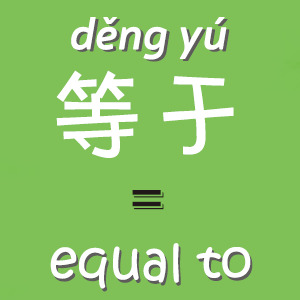
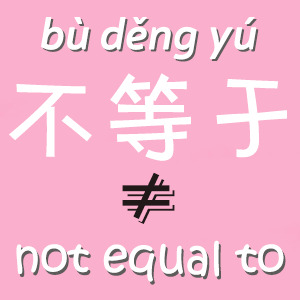

Some mathematical symbols in Mandarin Chinese~
454 notes
·
View notes
Link

#365Chinese - Character of the Day @ #PaceMandarin
jiè 界 boundary
http://www.pace-mandarin.com/jie4-boundary/
4 notes
·
View notes
Photo
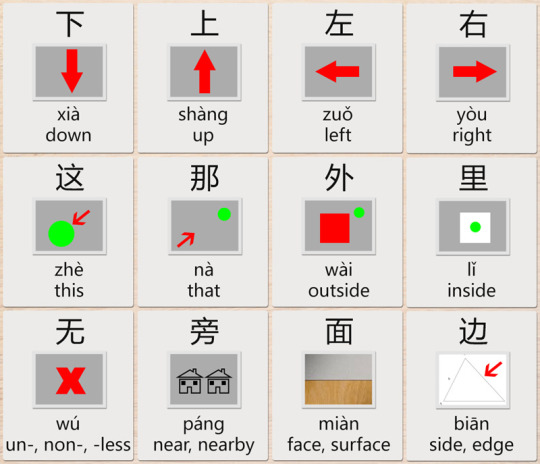
(via All about Location Words)
In Chinese language, 方位词 (nouns of locality) are used for this purpose. Here is a list of the most common words to describe location. Learn now: http://bit.ly/2kfyzot
131 notes
·
View notes
Photo

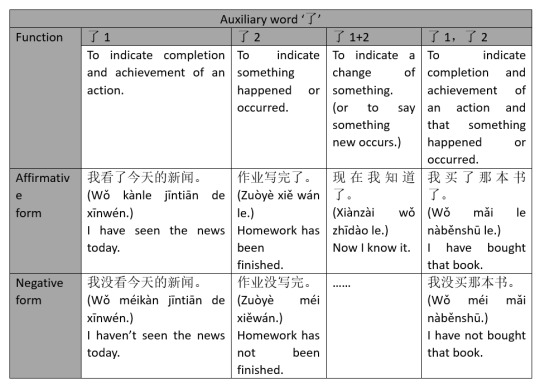
(via The use of ‘了’(le)in Chinese)
“我去了公司了。” When you first read or hear this kind of sentence, you may wonder, why do I need to use two “了” in one sentence? Do they have the same meaning? What are their functions? How do I use “了” correctly? Many learners couldn`t tell the differences, and use “了” incorrectly even after they have reached a higher level. Now let`s talk about “了” and give us a clearer understanding on how to use this Auxiliary word.
More details: http://bit.ly/2kPXCeb
87 notes
·
View notes
Photo

Getting Sick 😷
生病 (shēng bìng) - to get sick
流鼻涕 (liú bítì) - to have a runny nose
头疼 (tóu téng) - to have a headache
发烧 (fā shāo) - to have a fever
感冒 (gǎn mào) - to have a cold
流感 (liú gǎn) - the flu
咳嗽 (késoù) - to cough
累 (lèi) - tired
毯子 (tǎnzi) - blanket
阿司匹林 (āsīpīlín) - aspirin
过敏 (guòmǐn) - to be allergic to
663 notes
·
View notes
Photo
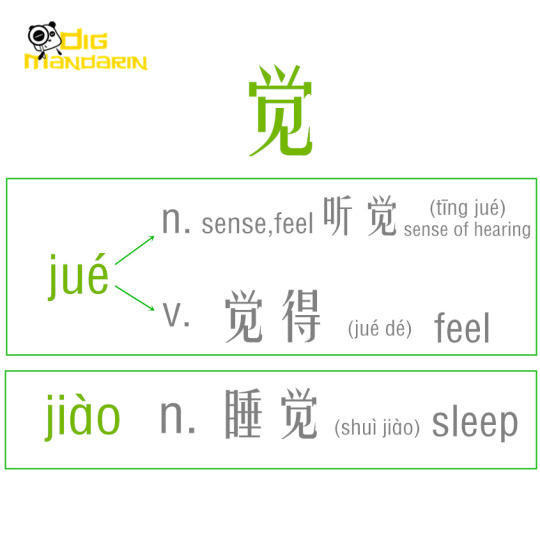
Chinese Polyphonic Characters Learning
two pronunciations of 觉
e.g.
我觉得很累,想睡觉。(Wǒ juéde hěn lèi, xiǎng shuìjiào.)
I feel very tierd and want to sleep.
Check the Polyphonic Characters E-book here: http://bit.ly/2je3u0z
30 notes
·
View notes
Text
Taipei, Taiwan 2017
Lets just go ahead and say I’m a 23 year old college student and I’m addicted to my phone. I literally sometimes just hold it to give me comfort. I was genuinely concerned about communication while I’m here in Taipei. There are are so many post and websites and suggestions available on how to though. Anytime I have traveled before I have always just bought a sim card in the country I am visiting and relied on WIFI to call back home. None of these sources though mentions that Taiwan seems to have some interesting ruled and one of them is that you have to be a local to buy a sim card it seems. I had to get one of my local friends to take me to get a sim card, even though its prepaid. So it has no contract associated it. It was strange from me coming from the states where literally anyone with the cash can buy a phone and start talking on it in a matter of minutes.
1 note
·
View note
Text
Taipei, Taiwan 2017
After a Full year of planing and studying Chinese I’m finally in Taiwan! It has been such a journey to get here that i’m honestly not sure what i’m doing here. I’m sure i’ll recover soon though. So far the week has been getting my appetite wet with anticipation of what all the island has to offer. Ive seen so many things to do and the locals are just so pleasant. Even with my poor Chinese, which is hard to understand, I can tell they really have kind hearts! Many people here in Taipei speak English though which I can see as a blessing and curse. While I try and speak Chinese they always respond in English if they speak it. Anyone whom seems to not speak English runs off to find someone who can. Its really sweet. Hopefully ill still get to develop my Chinese significantly through out my exploration of the Island. I heard that as I move south less and less people speak English, so a challenge may be in order.
0 notes
Text
Mandarin Grammar: 从来不 vs 从来没
so if you’re anything like me you get these two grammar patterns mixed up all the time
i learned these in my second year of mandarin and to this day i can’t distinguish them for the life of me so
for my sake and yours i’m gonna revisit them
subject+从来不+verb phrase
this is used to indicate something a person never does and probably never will do
奶奶从来不喝酒 nǎinai cónglái bu hējiǔ
Grandma doesn’t drink
我从来不洗碗 wǒ cónglái bu xǐ wǎn
I don’t do the dishes (lol jk i do my dishes just not in a timely manner)
so like i said this one implies that you have no intention of doing the action you don’t do now
subject+从来没+verb+过+something
this one is more like someone has never done something but they’re open to doing it, or that they’ve just never experienced something
我从来没去过中国 wǒ cónglái méi qùguò zhōngguó
I’ve never been to China
她从来没吃过火锅 tā cónglái méi chīguò huǒguō
She’s never eaten a hotpot
so that’s all i have to say on this topic but as always if there’s an comments questions or concerns just hmu
384 notes
·
View notes
Link
In the collection below, you’ll find many examples (some with videos) of how to use a variety of common Chinese words and expressions in many different ways: http://bit.ly/2iPfloq
28 notes
·
View notes

